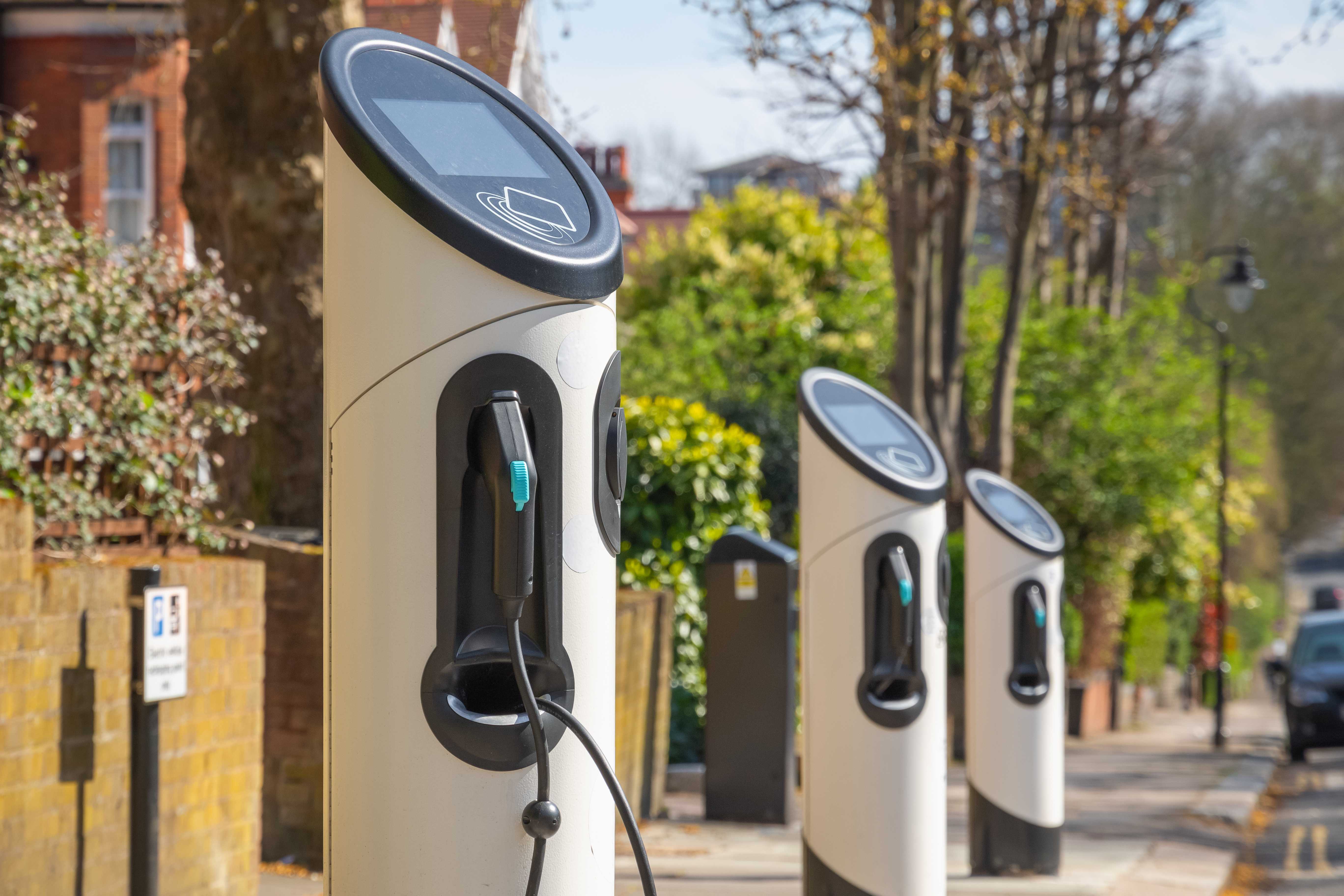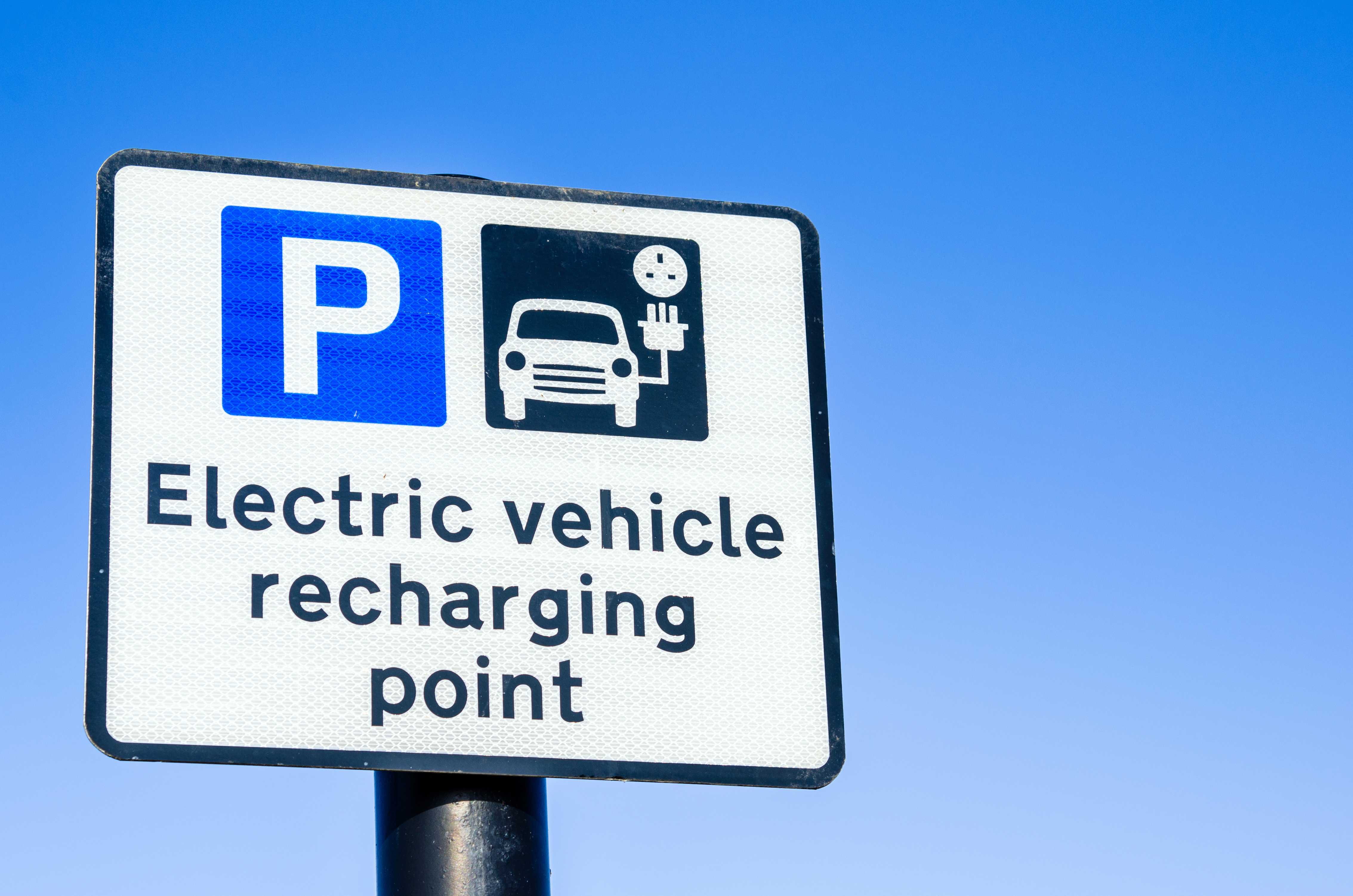Electric cars and vans – should you get one for your business?
5-minute read

Electric vehicles for business have been increasing in popularity in recent years due to their environmental benefits, lower running costs, and a range of government incentives.
Read on to find out more about the pros and cons of having an electric vehicle for your business, as well as a rundown on some of the best electric business cars and vans.
The pros and cons of electric cars and vans for business
Electric vehicles have many financial and environmental benefits for businesses. However, there are some cost and performance downsides that you’ll need to consider.
What are the advantages?
- the running costs are much lower – charging an electric vehicle could cost you a fraction of what you’d usually be spending on fuel
- there are clear environmental benefits – one electric car can save approximately 1.5 million grams of CO2, according to EDF Energy
- there are tax benefits for business owners who have electric vans and vehicles
What are the disadvantages?
- most electric vans won’t be able to travel as far as diesel or petrol vehicles without needing to be charged
- it’s likely you’ll need to install a charging point at home or at work, which is an extra cost to consider
- the initial cost of buying an electric car or van for your business is likely to be higher than buying a petrol or diesel vehicle
Can businesses get grants for electric cars and vans?
If you buy an electric vehicle for work, you can benefit from lower congestion charges and money towards installing an electric vehicle charge point.
Drivers of electric vehicles used to be able to claim between £1,500 and £16,000 depending on the type of vehicle they bought.
In June 2022, the government announced that it was closing the low-emission vehicles plug-in grant with immediate effect. The funding is now being used to improve electric vehicle charging.
Travel incentives for electric vehicle owners
If you have to travel into urban areas for work, there's a range of benefits to having an electric van or car:
- in London, electric vehicle owners don’t have to pay the congestion charge, saving £15 a day (until 24 December 2025)
- you’ll also be exempt from paying £12.50 a day as part of the ultra low emission zone (ULEZ)
- there are similar low emission zones in Birmingham, Manchester, Bristol, Bath, and Oxford
Electric car charging points for business
One of the reasons some business owners are unsure whether to buy an electric van or car is due to the cost and availability of charging points.
In response to this, the government has introduced an Electric Vehicle Homecharge Scheme, which offers up to 75 per cent towards the cost of installing electric vehicle charge points at people’s homes.
There’s also the Workplace Charging Scheme, which offers vouchers towards the cost of buying and installing an electric vehicle charge point at a workplace.

What are the tax benefits of having an electric vehicle for your business?
If you buy a vehicle for your employees to use as a company car, they’ll need to pay company car tax and you’ll need to pay National Insurance at 14.53 per cent.
The benefit in kind tax rate for employees with electric cars and vans used to be 16 per cent. However, it was reduced to zero per cent in April 2020, rising to one per cent in April 2021, and two per cent from April 2022 to April 2025.
The benefit in kind rate will increase by 1 per cent each year from 2025 until 2028.
This means it’s now a lot cheaper to have an electric company car. What’s more, the benefit in kind tax rate for higher emissions vehicles is over 30 per cent, meaning electric car drivers make a significant saving.
Electric vehicle owners are also exempt from the following:
- vehicle excise duty (until 2025)
- van benefit charge
- fuel benefit charge
- fuel duty
If you buy an electric business vehicle personally (rather than as a company car), you can claim 45p per mile as a business travel expense, despite the cost of an electric vehicle being an estimated 4p per mile.
Car tax will apply from 2025
Electric vehicle owners will need to pay car tax (vehicle excise duty) from 2025:
- first year rate – £10 for the first year of ownership for cars registered on or after 1 April 2025
- standard rate – from the second year onwards, the standard rate of £165 a year will apply
- expensive car supplement – if you buy an electric vehicle that costs more than £40,000 when new from April 2025, then an additional rate will apply for five years
- hybrid rate – from 1 April 2025 hybrid cars will pay the same as for diesel and petrol cars (£165)
The environmental impact of electric business vehicles
The movement encouraging more people to use electric cars has been driven by the government, which announced its plans to ban the sale of new petrol and diesel cars in the UK by 2030.
Research from Ofgem suggests that more than 6.5 million households have plans to buy an electric or plug-in hybrid vehicle. Meanwhile, the Department for Transport estimated in 2021 that there were around 500,000 ultra-low-emissions vehicles on the road in Britain.
On top of the environmental benefits, there are plenty more reasons for business owners to go electric, such as the government’s clampdown on petrol and diesel vehicles, initiatives like ULEZ, and various tax incentives.
For customer-facing businesses operating in towns and cities, there’s a clear Corporate Social Responsibility (CSR) benefit in showing that you’re committed to reducing your carbon footprint.
And even if your business isn’t consumer-facing, such as a driver delivering manufactured goods, the amount of emissions saved across long journeys each year will likely be enough to make you consider the pros and cons of going electric.

What are the best electric vans and cars for businesses?
If you’re thinking about getting an electric car or van for your business, there are lots of options to choose from. Here’s an overview of six popular electric vans and cars for small businesses, according to What Car? magazine.
Three of the best electric vans
Ford E-Transit
This is a large electric van that you can drive 196 miles between charges. It’s recommended for most business drivers, whether you're driving in the city or on motorways and will set you back £44,945+.
Citroën e-Berlingo Van
This small van claims a range of 171 miles between charges, and takes just 30 minutes to reach 80 per cent charge. It’s recommended for businesses that drive shorter distances and is likely to cost around £30,000.
Peugeot e-Partner
This smaller van is good for drivers in cities and built-up areas. It has a range of 171 miles will likely cost around £33,000 to buy new.
Three of the best electric cars
Genesis GV60
This car has a range of 321 miles and can go from 10 to 80 per cent charge in around 18 minutes. It’s known for its heated front seats and steering wheel and costs just under £53,000 new.
Tesla Model 3
Tesla boasts fast charging with the brand's Supercharger network, and offers a model with fast acceleration and good storage too. The range on a single charge is said to be 374 miles, and it retails at around £43,000 to £57,000 new.
BMW iX3
Although it takes up to eight hours to charge (depending on your charging point), this car boasts a range of 285 miles. It also offers excellent infotainment. To buy new, it will cost at least £65,000.
Should you buy or lease an electric vehicle for business?
There are good reasons to take either approach. An electric car business lease reduces the upfront cost and gives you a better chance of keeping up with technology developments such as increased time between charges.
On the other hand, there are lots of financial incentives for buying an electric business vehicle and the running costs after your initial outlay are likely to be very low.
Whatever you decide, it’s important to do your research and think about the long-term impact it could have on your business.
For more information, read our general guide to buying or leasing a business van.
Are you considering buying an electric vehicle for your business? Let us know in the comments below.
More guides for small businesses
Ready to set up your cover?
As one of the UK's biggest business insurance providers, we specialise in public liability insurance and protect more trades than anybody else. Why not take a look now and build a quick, tailored quote?
Start your quote
Written by
Conor Shilling
Conor Shilling is a Copywriter at Simply Business with over two years’ experience in the insurance industry. A trained journalist, Conor has worked as a professional writer for 10 years. His previous experience includes writing for several leading online property trade publications. Conor specialises in the buy-to-let market, landlords, and small business finance.
We create this content for general information purposes and it should not be taken as advice. Always take professional advice. Read our full disclaimer
Keep up to date with Simply Business. Subscribe to our monthly newsletter and follow us on social media.
Subscribe to our newsletterInsurance
Public liability insuranceBusiness insuranceProfessional indemnity insuranceEmployers’ liability insuranceLandlord insuranceTradesman insuranceSelf-employed insuranceRestaurant insuranceVan insuranceInsurersAbout
About usOur teamAwardsPress releasesPartners & affiliatesOur charitable workModern Slavery ActSection 172 statementSocial mediaSite mapAddress
6th Floor99 Gresham StreetLondonEC2V 7NG
Northampton 900900 Pavilion DriveNorthamptonNN4 7RG
© Copyright 2024 Simply Business. All Rights Reserved. Simply Business is a trading name of Xbridge Limited which is authorised and regulated by the Financial Conduct Authority (Financial Services Registration No: 313348). Xbridge Limited (No: 3967717) has its registered office at 6th Floor, 99 Gresham Street, London, EC2V 7NG.